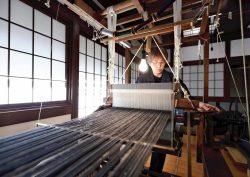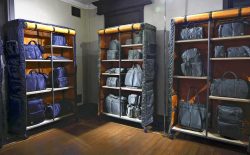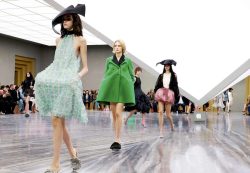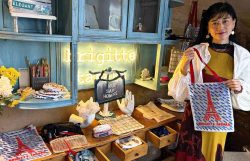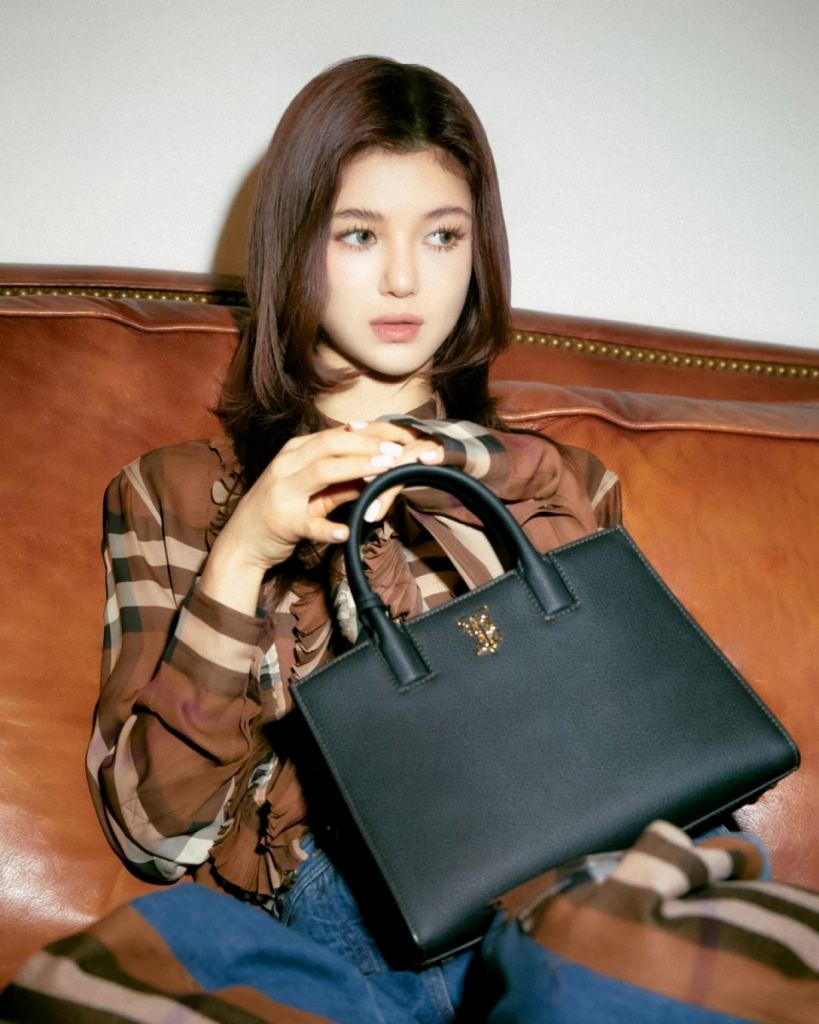
Danielle of NewJeans, a global ambassador of Burberry
16:23 JST, August 5, 2023
This year has seen a number of K-pop stars making their way into the world of fashion as international brand ambassadors, one after another.
Appointing K-pop stars as brand ambassadors is not something that has started lately. The tide gained momentum around 2016, when G-Dragon of BIGBANG was named a Chanel ambassador.
In the so-called diversity movement, it has become a major trend to undo the prevalence of White ambassadors in choosing the faces of fashion brands and instead use a non-White person, an Asian in particular. It seems that South Korean pop stars have been a perfect fit for the job partly because of their fluency in English. Or perhaps the decisive factor was that all the stars who were to become brand ambassadors already had millions of followers on their Instagram accounts.
I would like to praise the foresight of South Korean entertainment agencies that marketed their artists globally from years before.
During the height of the COVID-19 crisis from 2020 to 2022, fashion weeks in Paris and Milan were mostly held remotely without spectators. And this year, most shows are back to normal, with a surprising number of stars from South Korean boy bands and girl bands being selected as ambassadors of high-end fashion brands.
Here are some examples of K-pop stars becoming brand ambassadors in the first quarter of this year:
Taeyang (BIGBANG), Givenchy
Jackson Wang (GOT7), Louis Vuitton
Suga (BTS), Valentino
Jimin (BTS), Dior
Danielle (NewJeans), Burberry
Minji (NewJeans), Chanel
Yujin (IVE), Fendi
Jung Kook (BTS), Calvin Klein
Particularly notable is the appointment of stars from the so-called fourth-generation K-pop movement, such as Yujin from IVE, which debuted in 2021. Even before she became a Fendi ambassador, Wonyoung from the act became a brand ambassador of Miu Miu in 2021.
K-pop groups are generally divided into four generations: The first generation is from the formative years (1996-2004); the second generation (2005-2013) includes such acts as TVXQ!, BIGBANG, Girls’ Generation and KARA, and coincides with the time when the three major agencies — SM Entertainment, YG Entertainment and JYP Entertainment — made headway; the third generation (2013-2018), which saw the success of global star acts such as BTS and Blackpink, which have made effective use of social media; and the fourth and current generation that started in 2019.
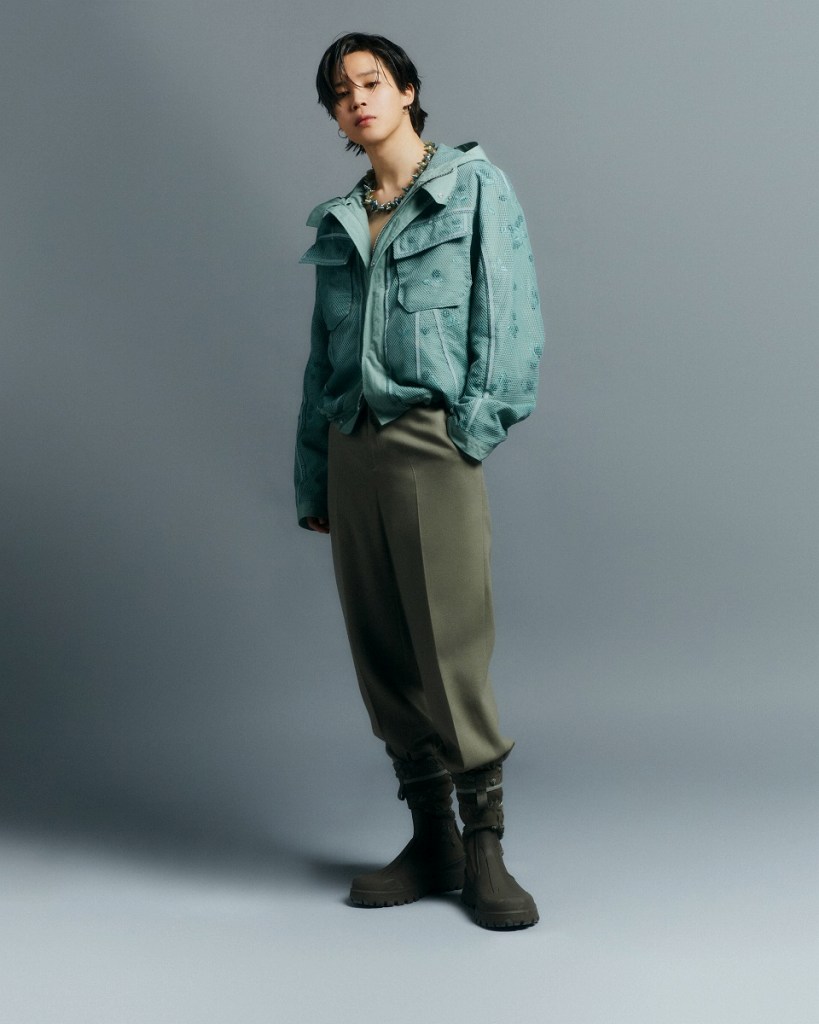
Jimin of BTS, a global ambassador of Dior
Such a quick overview of the K-pop scene alone makes one surprised at its depth. In addition to the top three agencies, HYBE, which manages the No. 1 act that is BTS, has been unstoppable so that now it is said there are four major entertainment agencies in South Korea.
As luxury brands constantly sent enthusiastic love calls to K-pop stars, some of them even gained nicknames related to brand names, such as Human Chanel (Jennie of Blackpink) and Human Gucci (Kai of EXO). Blackpink’s Lisa, who comes from Thailand, is also called Human Celine at times as the brand’s global ambassador. Bulgari also has appointed her a global ambassador of the brand.
Japanese stars and actors are often not chosen as ambassadors of luxury fashion brands. Yet most of them are brand ambassadors exclusively for Japan, and many of them are actors, models or athletes, not J-pop stars.
While some of those Japanese ambassadors look to me as if they are overshadowed by the brand attire they are made to wear, K-pop stars appear very natural, dressed to the nines as brand ambassadors, which I find amazing. The mutual love affair between K-pop stars and high-end fashion brands make the stars look fashionable and sophisticated, so much so it is convincing that their popularity is global.
When the Seoul fashion week was launched in 2000, I was invited to attend the inaugural event. My impression back then was that the whole thing looked unbalanced and not up to the standard. I thought it would take them more than 20 years to reach the level of Japan. Looking at the global success of K-pop stars 23 years later, I have become to think that it will not take long before world-class fashion designers start coming from South Korea.
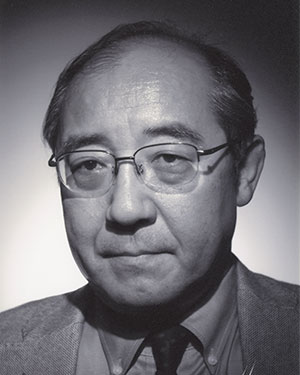
Akira Miura
Miura is a journalist and a former editor in chief of WWD Japan.
Top Articles in Culture
-

BTS to Hold Comeback Concert in Seoul on March 21; Popular Boy Band Releases New Album to Signal Return
-

Lifestyle at Kyoto Traditional Machiya Townhouse to Be Showcased in Documentary
-

Director Naomi Kawase’s New Film Explores Heart Transplants in Japan, Production Involved Real Patients, Families
-

‘Jujutsu Kaisen’ Voice Actor Junya Enoki Discusses Rapid Action Scenes in Season 3, Airing Now
-
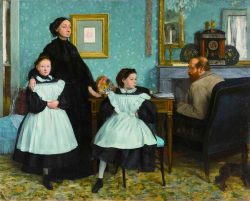
Tokyo Exhibition Offers Inside Look at Impressionism; 70 of 100 Works on ‘Interiors’ by Monet, Others on Loan from Paris
JN ACCESS RANKING
-

Japan PM Takaichi’s Cabinet Resigns en Masse
-

Japan Institute to Use Domestic Commercial Optical Lattice Clock to Set Japan Standard Time
-

Israeli Ambassador to Japan Speaks about Japan’s Role in the Reconstruction of Gaza
-

Man Infected with Measles Reportedly Dined at Restaurant in Tokyo Station
-

Videos Plagiarized, Reposted with False Subtitles Claiming ‘Ryukyu Belongs to China’; Anti-China False Information Also Posted in Japan


